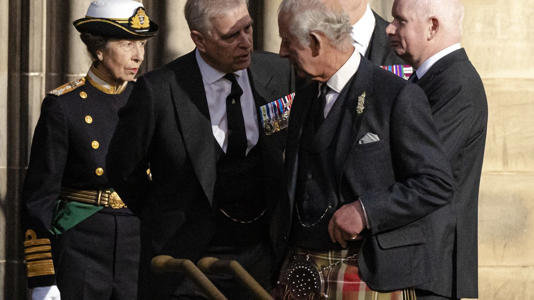Prince Andrew will have to fork out for the maintenance costs of his home at Royal Lodge if he’s to remain living there, it has emerged.
The Duke of York, 64, currently relies on the financial backing of his brother the King – and the Royal Family as a whole – to remain in the sprawling Berkshire home.
Though Andrew has leased the Crown Estate property in the depths of Windsor Great Park for decades, Royal Lodge requires substantial maintenance due to its listed status.
But, according to a fresh BBC report, the disgraced duke faces a push to relocate – dubbed the “siege of Royal Lodge” by some insiders.
Sources suggest that the “siege” is motivated by long-term financial considerations rather than family disputes, with the royals understood to be looking around for more affordable accommodation for the prince in the coming decades.
Prince Andrew’s lease agreement has been in place since August 2003, following the death of its previous occupant, Queen Elizabeth the Queen Mother.
The prince initially spent some £7.5m on renovations and made a one-off payment of £1m to the Crown Estate.
His 75-year lease includes a clause that prevents Prince Andrew from profiting from any increase in the property’s value, and it can only be passed on to his daughters or widow in the event of his death.
If Andrew were to terminate the lease now, he would receive little compensation for his original renovation costs due to a diminishing reimbursement arrangement covering the first 25 years of his occupancy in Royal Lodge.
Though the duke has remained steadfast in staying at Royal Lodge, observers have tipped Andrew for a move to nearby Frogmore Cottage – once occupied by the Duke and Duchess of Sussex.
But if Andrew can fund the extortionate costs of maintaining and securing Royal Lodge himself, he may be given leave to remain.
The current financial support from King Charles is not expected to continue indefinitely, which has prompted speculation that Andrew could be shunted somewhere more affordable in the near-to-distant future.
The decision to lease Royal Lodge to Prince Andrew in 2003 was driven by several factors.
The Crown Estate is understood to have considered it financially advantageous to have a paying tenant rather than using it as a “grace and favour” residence for the Royal Family.
And Prince Andrew’s willingness to fund the necessary renovations saved the Crown Estate from bearing those costs, while the property’s proximity to other royal residences also made it a sensible choice from a security standpoint.
National Audit Office documents from 2005 reveal that the arrangement included options for a one-off payment of £2.5m to buy out the annual rental – but as the so-called siege continues, it’s unclear whether the under-fire prince would – or could – take that option.
